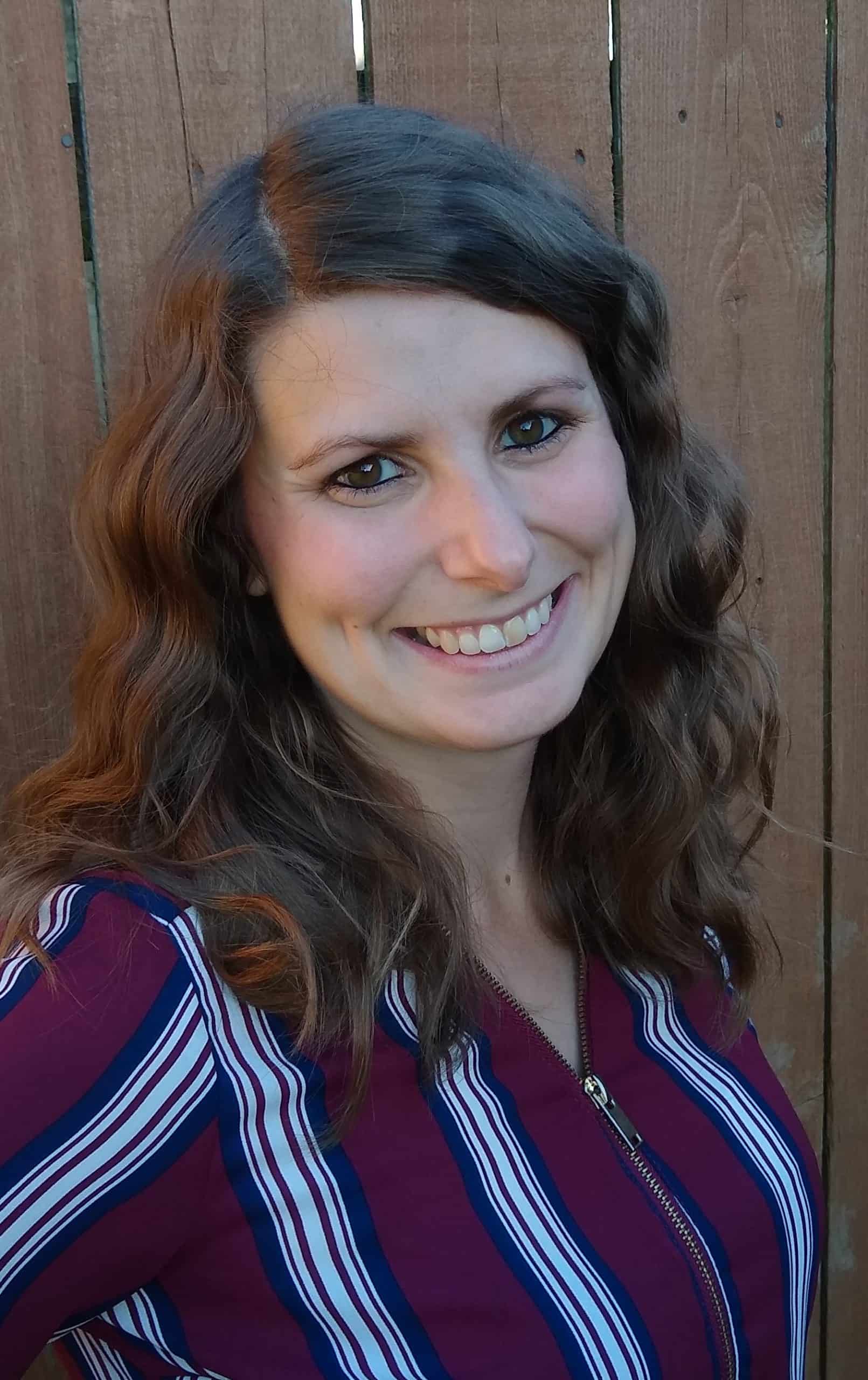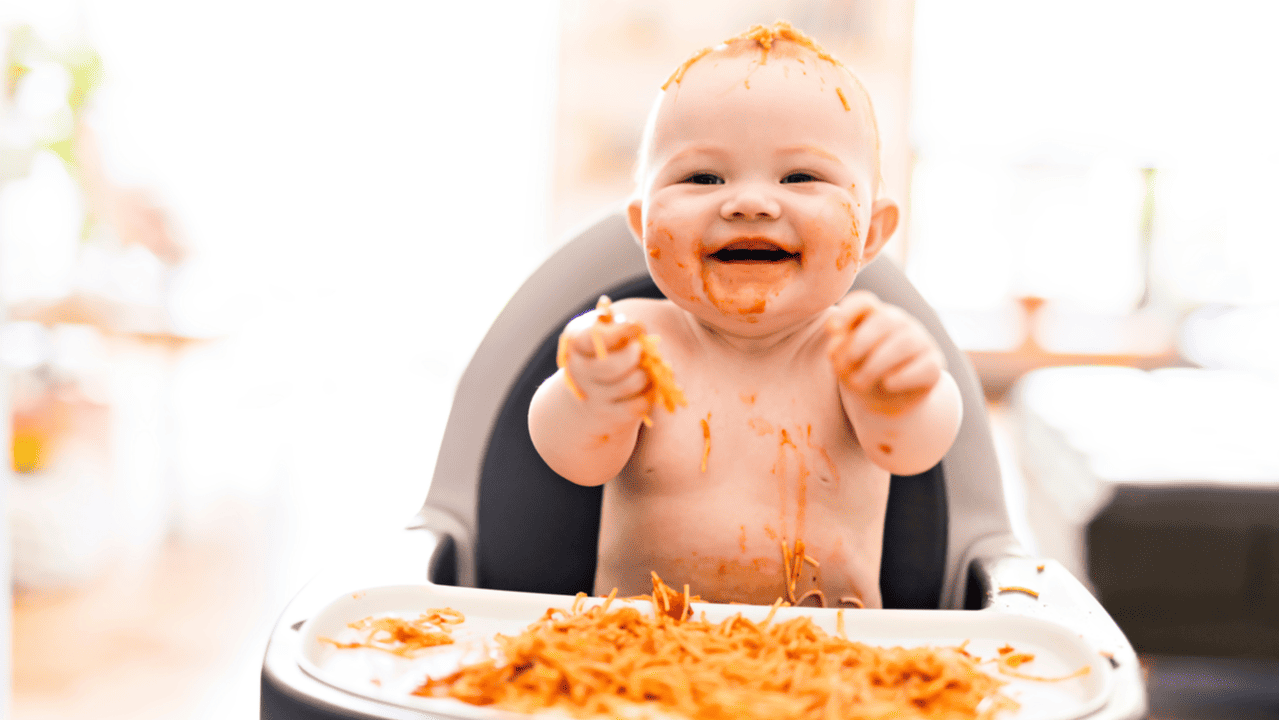 | | | | About the Author Rachel Cook has been a Product Development Specialist at Great Kids® since 2017. Her passion for helping strengthen families is prevalent in her curriculum content creation. Before joining Great Kids, she worked as a home visitor with Kentucky HANDS. She lives in Berea, Kentucky, with her husband and new baby, where she loves writing and exploring nature. Contact Rachel at rcook@greatkidsinc.net. |
As I settle in to write this evening, the blue sky is fading to dark, and the evidence of a busy day lies scattered amongst my home. Stacked dishes fill the kitchen sink, toys decorate the living room floor, and dirty laundry overflows from every hamper. Grains of brown rice are smeared into my sweater, and I’m beginning to notice the itty-bitty fingerprints pressed against my glasses. My home and myself (if I’m being honest) look a bit of a mess. However, my kiddo is fast asleep, resting after a busy day of learning.
One of the many things that parenting has taught me is that taking care of a child is messy.
Luckily, experts tell us that kiddos develop healthy brains through these messy, everyday moments.5 They even remind us that children LOVE a mess.1
As a parent of a six-month-old, I’ve had to lean into messes. Just today, I took my baby to play outside. I had envisioned us exploring how objects float and sink in water, blowing soapy bubbles, and talking about the vibrant green grass. In other words, I imagined a very clean learning scenario for my kiddo, like a front cover you might see on a magazine’s spring edition. So, how did my afternoon actually go? Well, it was a lot messier.
The floating objects were fun until my child realized that dumping the water was even more amusing. My baby thought the grass had an interesting texture but not as fascinating as the puffy white dandelions they tried to eat. We blew some bubbles, but the family dog kept eating them, which my kiddo found hilarious.
Maybe the day wasn’t what I imagined, and it even ended up being quite messy, but it was still another great day raising my child. I spent the day helping them explore their curiosities, joining in their laughter, and soothing them during times of frustration. Even though our day had literal messes and some emotionally messy moments, I find reassurance in these typical everyday interactions knowing experts say these moments are exactly what children need to grow healthy brains.4,5
Research tells me I’m currently raising a kiddo in the most critical stage of brain development, which is the first three years of life.2,5
Children won’t master spelling their names or learning to count to 100 in these first few years. However, this is when infants and toddlers learn they have loving and caring adults in their lives. Children begin to understand that nurturing adults respond to their needs and interests with love.2,4,5 In fact, young children learn the most when they explore things that ignite their curiosity, even if it’s an energetic dog or sticky brown rice.6
Take my baby, for example. They didn’t learn about floating and sinking like I had planned today. However, they learned about pouring liquid, which is also an important skill. They’ll need this skill for cooking, filling up a glass, and those science classes they’ll be taking years from now.
Early childhood brain development comes down to showing up for kiddos during their everyday moments.
Young children will let us know what interests them.3,4,5,6 We just have to wait for their invitation, even if it’s a cold bucket of water being dumped right into your lap.
References
1. Berke, J. (2016, November 22). Let the playing commence! A tribute to Bev Bos. Community Play Things. https://www.communityplaythings.com/resources/articles/2016/bev-bos-on-play
2. Center on the Developing Child at Harvard University. (n.d.). Brain architecture. https://developingchild.harvard.edu/science/key-concepts/brain-architecture/
3. Center on the Developing Child at Harvard University. (n.d.). 5 steps for brain-building serve and return. https://developingchild.harvard.edu/resources/5-steps-for-brain-building-serve-and-return/
4. Government of the Province of British Columbia. (2019, November). Toddler’s first steps: A best chance guide to parenting your 6- to 36-month-old. HealthLinkBC. https://www.healthlinkbc.ca/sites/default/files/documents/toddlers-first-steps.pdf
5. Parlakian, R., & Lerner, C. [Zero To Three]. (2013). Brain development. Zero To Three. https://www.zerotothree.org/espanol/brain-development
6. Zero To Three. (2010, February 20). Tips on nurturing your child’s curiosity. https://www.zerotothree.org/resources/224-tips-on-nurturing-your-child-s-curiosity


